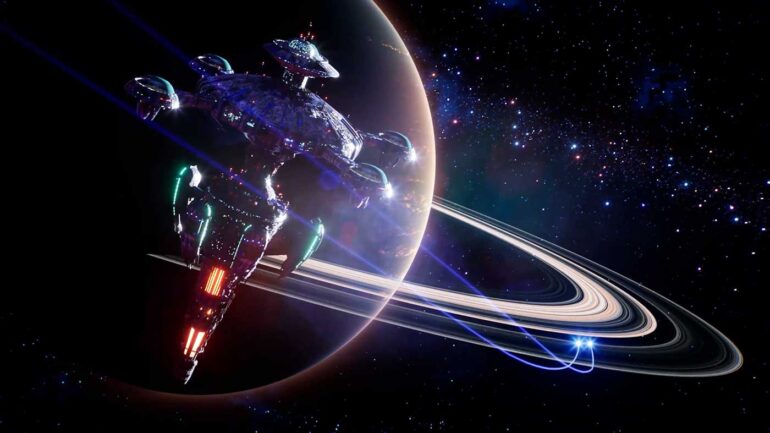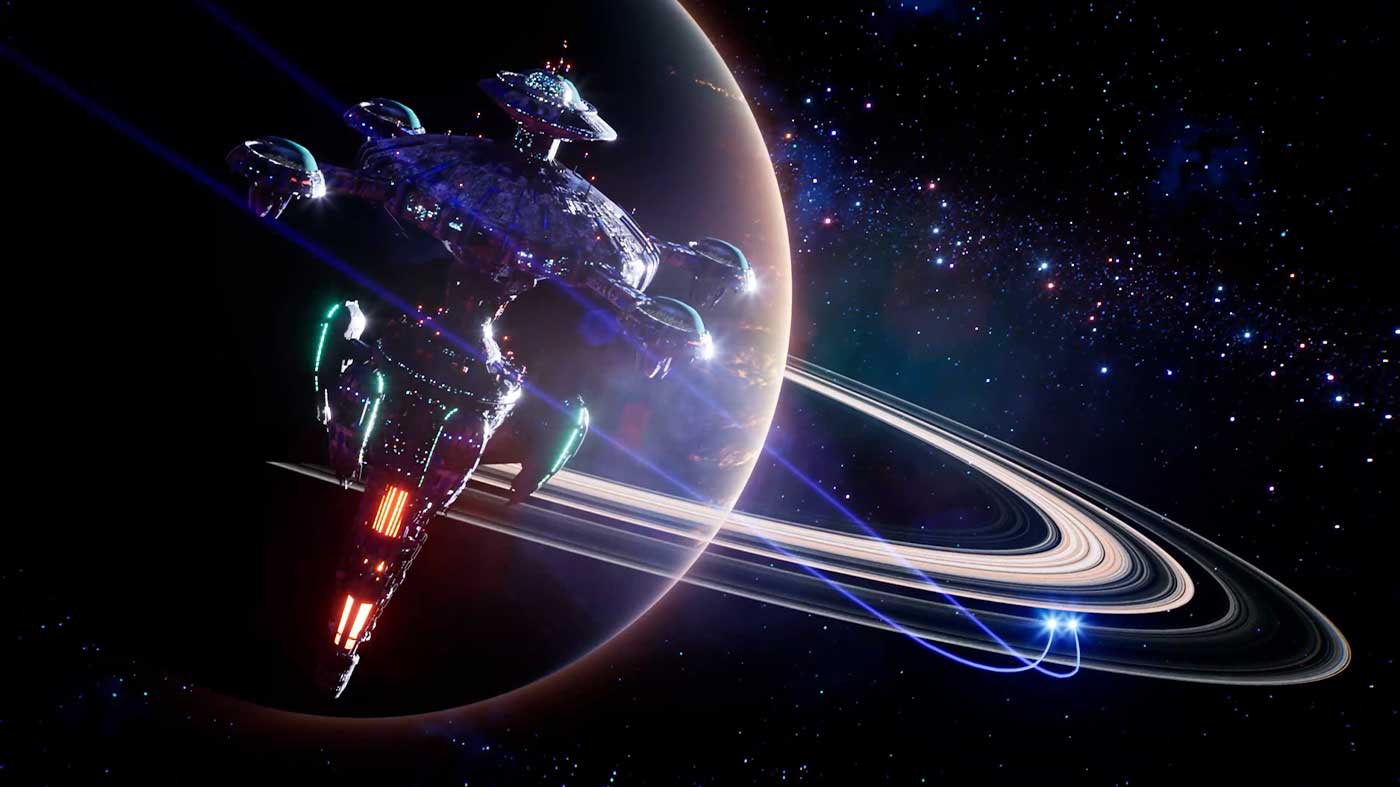System Shock might arguably earn its place on a hypothetical Mt. Rushmore of first-person shooters. It introduced features that would instantly become de rigueur, changing the shooter landscape forever after its inception. It wasn’t quite the mainstream draw that Doom was to my violence-addled five year-old mind and, as such, it never became a touchstone for me. But to deny its legacy would be folly.
Not only did it spawn a masterful sequel, it’s the grandfather of intelligent design and emergent gameplay in shooters. Were it not for System Shock, the existence of classics like BioShock, Half-Life and Prey would all be in doubt.
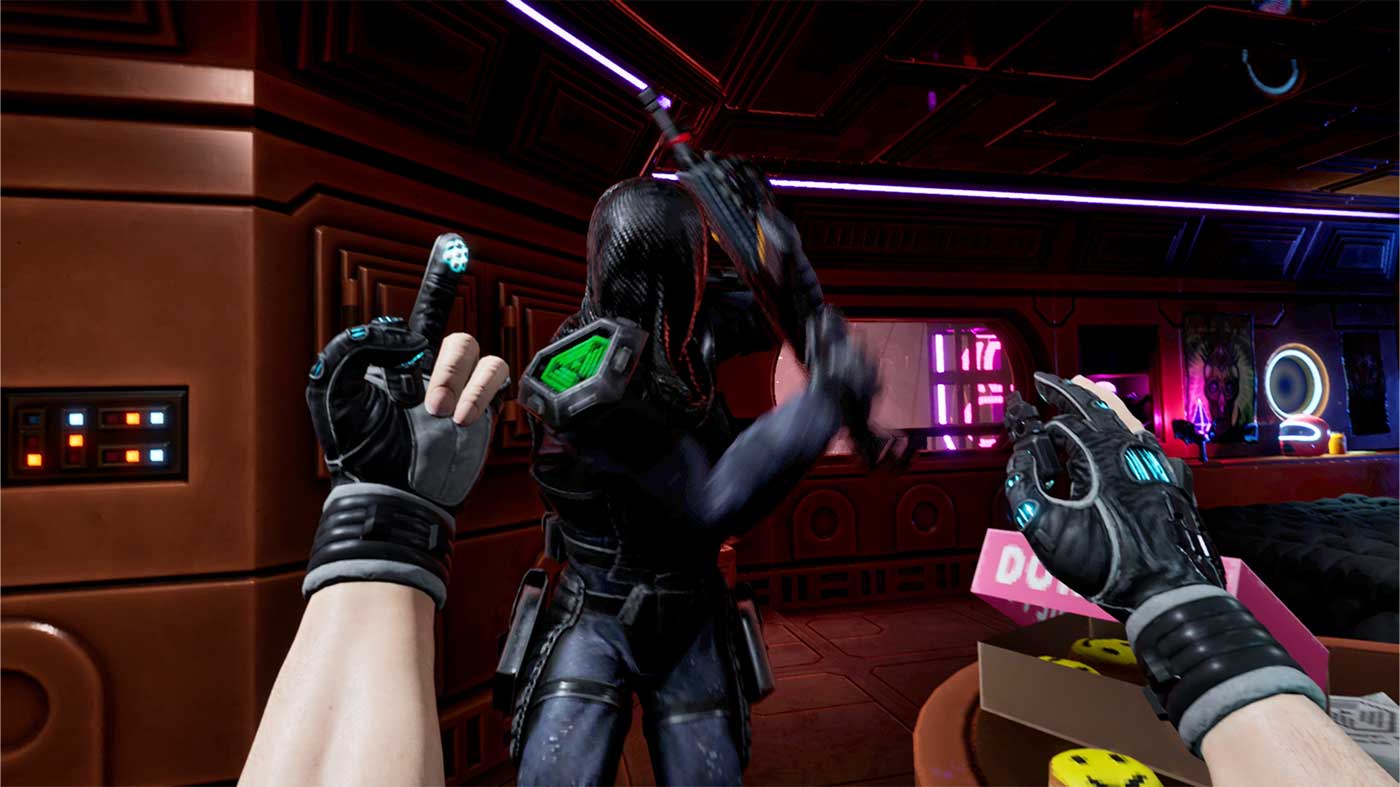
Nightdive Studios has long had their nose to the grindstone doing God’s work, putting their everything into preserving and recreating the essence of classic games that might, without a compatibility bump for modern platforms, be lost to time before long. While their work on System Shock is admirable, it’s the game’s genre-kickstarting systems and atmosphere that do the heavy lifting here.
The entirety of the game takes place aboard nine levels of The Citadel, a lighthouse-class space station. Like so many of the immersive sim worlds that have drawn inspiration from System Shock’s setting, it’s a tremendously realised backdrop for what is a rich sci-fi thriller.
With all of the station’s workers either being killed or succumbing to the virus on board, much of the game’s story is doled out through audio logs left behind by the hopeless or resolute hopeful as the station falls to the rule of SHODAN, the megalomaniac artificial intelligence that your character is coerced into unshackling from its ethical restraints in the game’s opening scene. One doesn’t need to have experienced System Shock to know that SHODAN is an absolutely iconic antagonist, her note-perfect malevolence and omnipresence is proof that her reputation as a bad bitch of video games is earned.
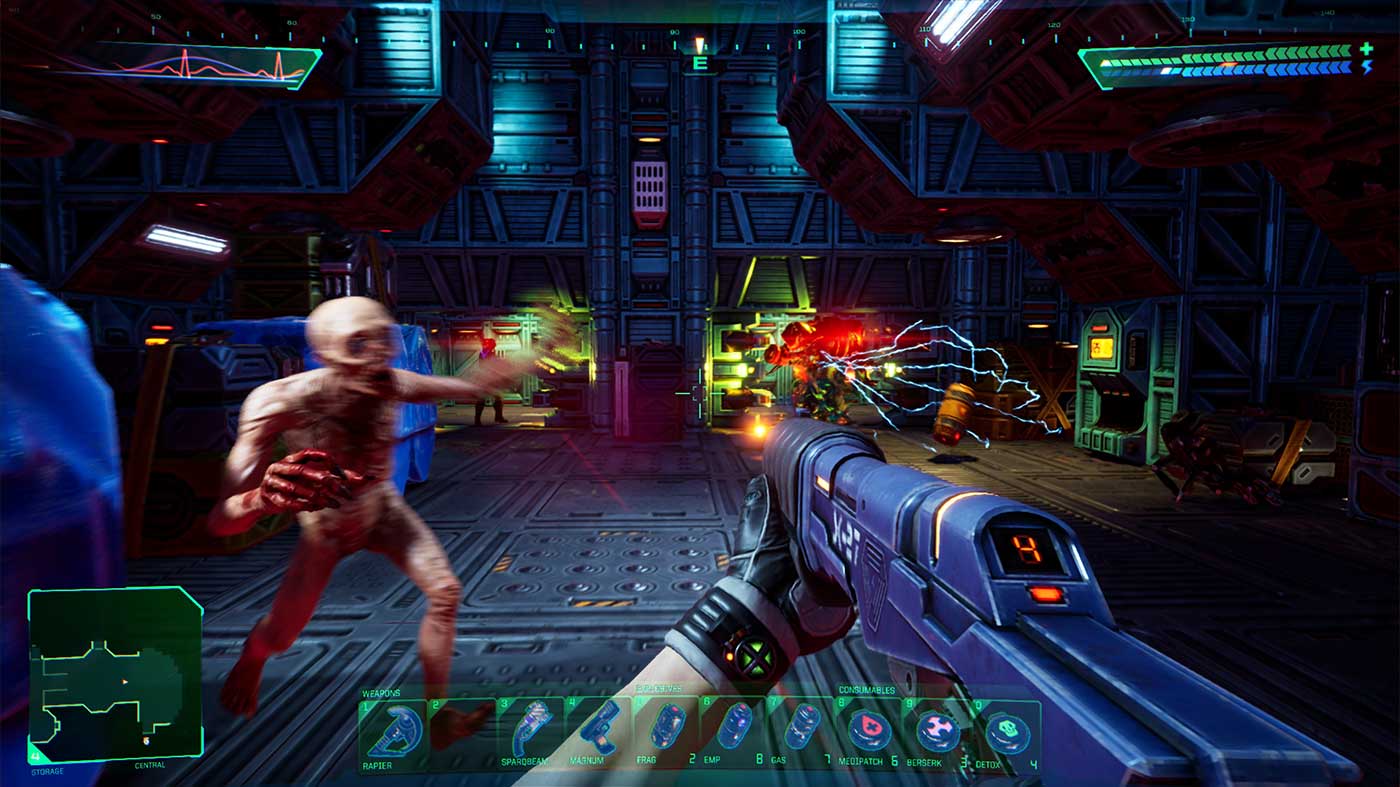
As an immersive sim, System Shock offers little as far as tutorials go. It carefully sets the scene before letting you loose into Citadel to explore its labyrinthine halls and rescue humanity from obliteration. It’s certainly liberating for those wanting to lose themselves in a storied sci-fi playground, but the lack of onboarding is sure to drive a wedge for fans of more modern, linear first-person shooters. Though I was able to lean on guides for the original whenever I did get stuck, the way it all progresses and unfolds does feel rather intuitive despite how many layers there are.
The audio logs, as well as the radio chatter from those still living, act as guiding hands while filling gaps in the game’s narrative, which – while still presenting System Shock’s story beat-for-beat – has apparently been made more watertight. Being faithful has its hang-ups, however, as the ending remains a dour final note on what is a pretty remarkable journey in all. For how well the game escalates the threat with each level, it was a sadly boring climax.
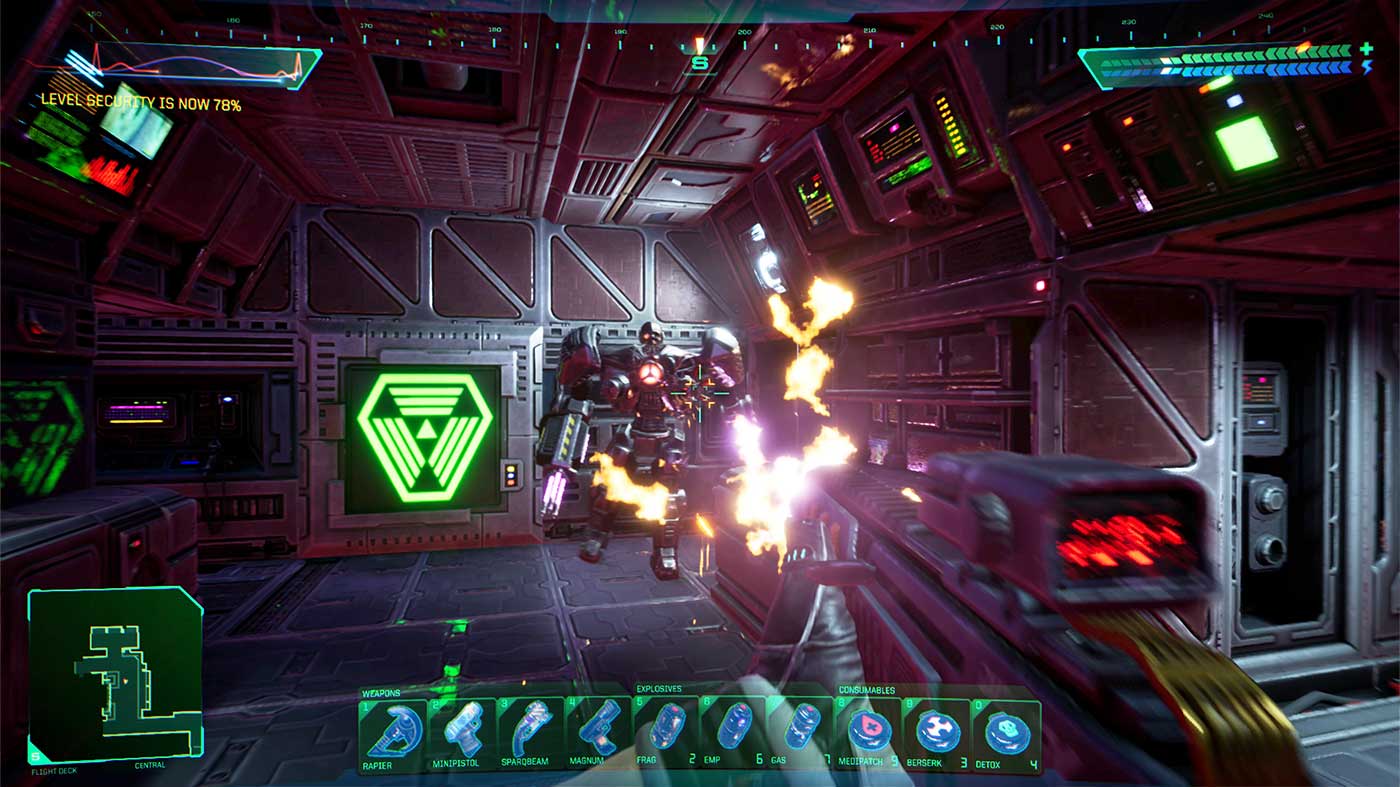
It’s expectedly far advanced over the original, which is now three decades old, but this remake still manages to feel dated at times. Where other rebuilds manage to retell their stories in a modern framework, System Shock is still marred by some old school design. The combat lacks heft and feels cumbersome across the board, there’s an ironic lack of enemy intelligence, and the inventory system did bog things down when, due to the real lack of ammo, any gun needed to be viable but ultimately couldn’t due to lack of space. It’s not all bad though, being able to save anytime I wanted certainly came in handy in circumventing the game’s tiresome, unskippable death animations.
Although many of the game’s more impressive systems feel commonplace now, the knowledge that this game broke so much ground thirty years ago is astounding. You’re forced to economise attachable wares, like night vision or jet boots, that drain your power cells when active, various ammunition types, and dermal patches that buff things like reflexes and strength.
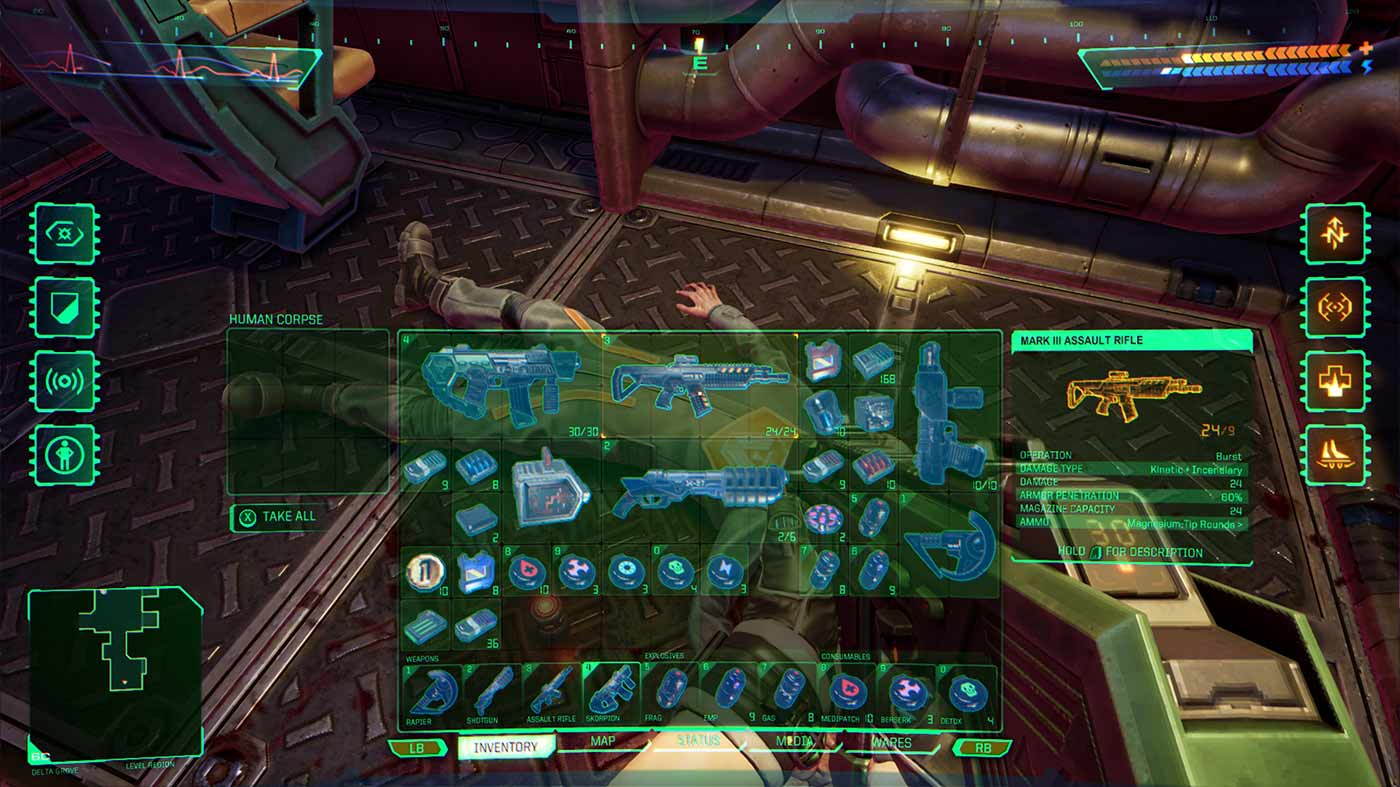
There’s also a bit of a Metroid feel to the game’s map. Instead of the path forward being ability-driven, however, it’s action-driven. In addition to bog standard keycards, destroying a floor’s surveillance systems to lower security levels or severing connections in the game’s entrancing wire-frame cyberspace can open doors throughout the station. The map, despite being an apparent improvement on the original, doesn’t exactly make exploration easy, but a few laps around each floor is sure to breed familiarity.
Speaking of improvements over the original, this System Shock is expectedly leaps ahead visually when compared to its decades-old counterpart. That’s not to say it’s on par with this generation’s standard, but Nightdive’s commitment to the original’s vision is commendable. It’s easy enough to forgive a few muddy textures and Gollum-like mutant designs when there’s so much variety throughout. There’s so much identity in each of the Citadel’s floors, cyberspace is a trip, and so much of the heads-up display is distinctly cyberpunk.
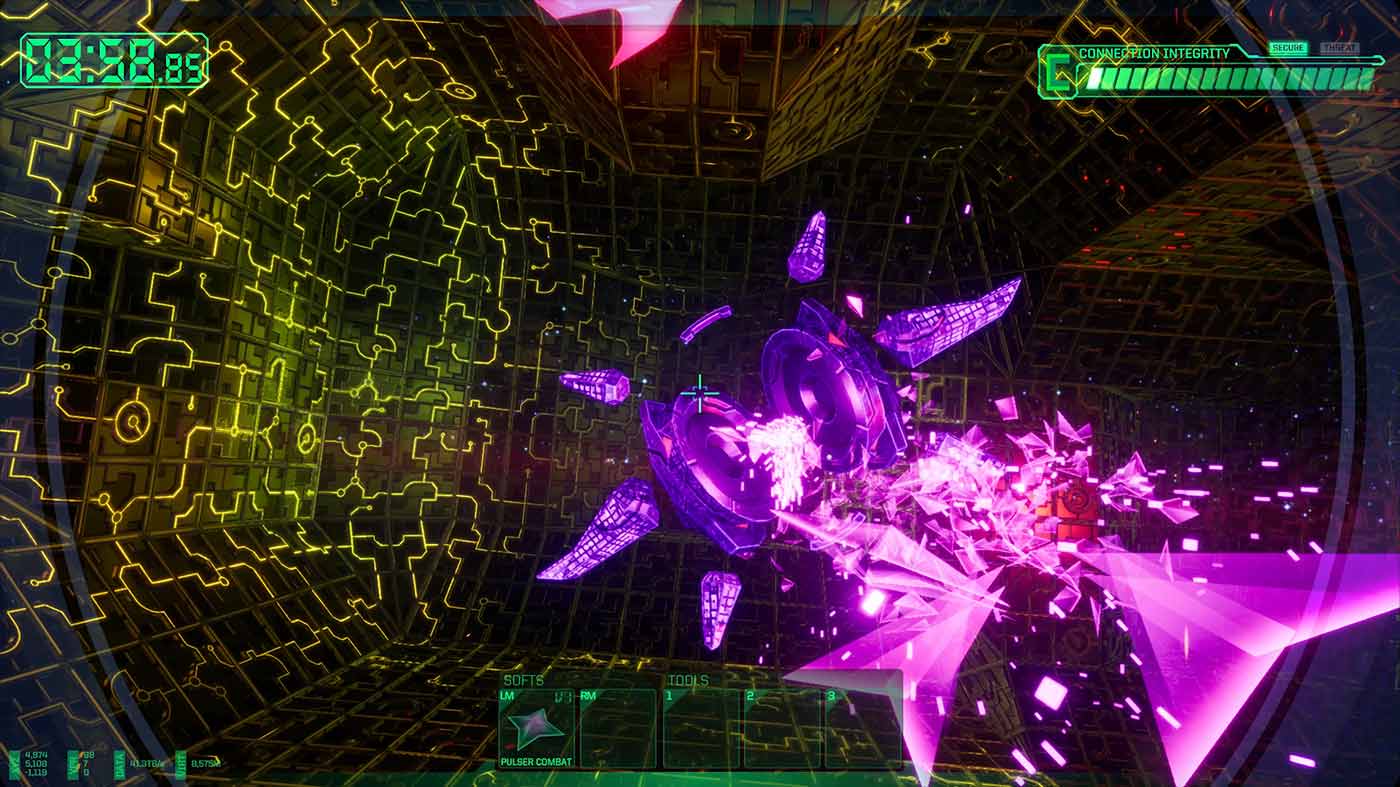
The inimitable Terri Brosius returns without missing a beat to reprise her role as SHODAN. The character’s machinations are, of course, devised by the writers, but they’re dutifully brought to life by Brosius, complete with the same discordant cadence that propelled the character to infamy in the first place.
The fact someone like me is now able to play a modern attempt at System Shock is a miracle. It’s iconic and influential in ways a lot of gamers might underestimate, so exploring this world today is a privilege. It does feel like a classic, for better and worse.


